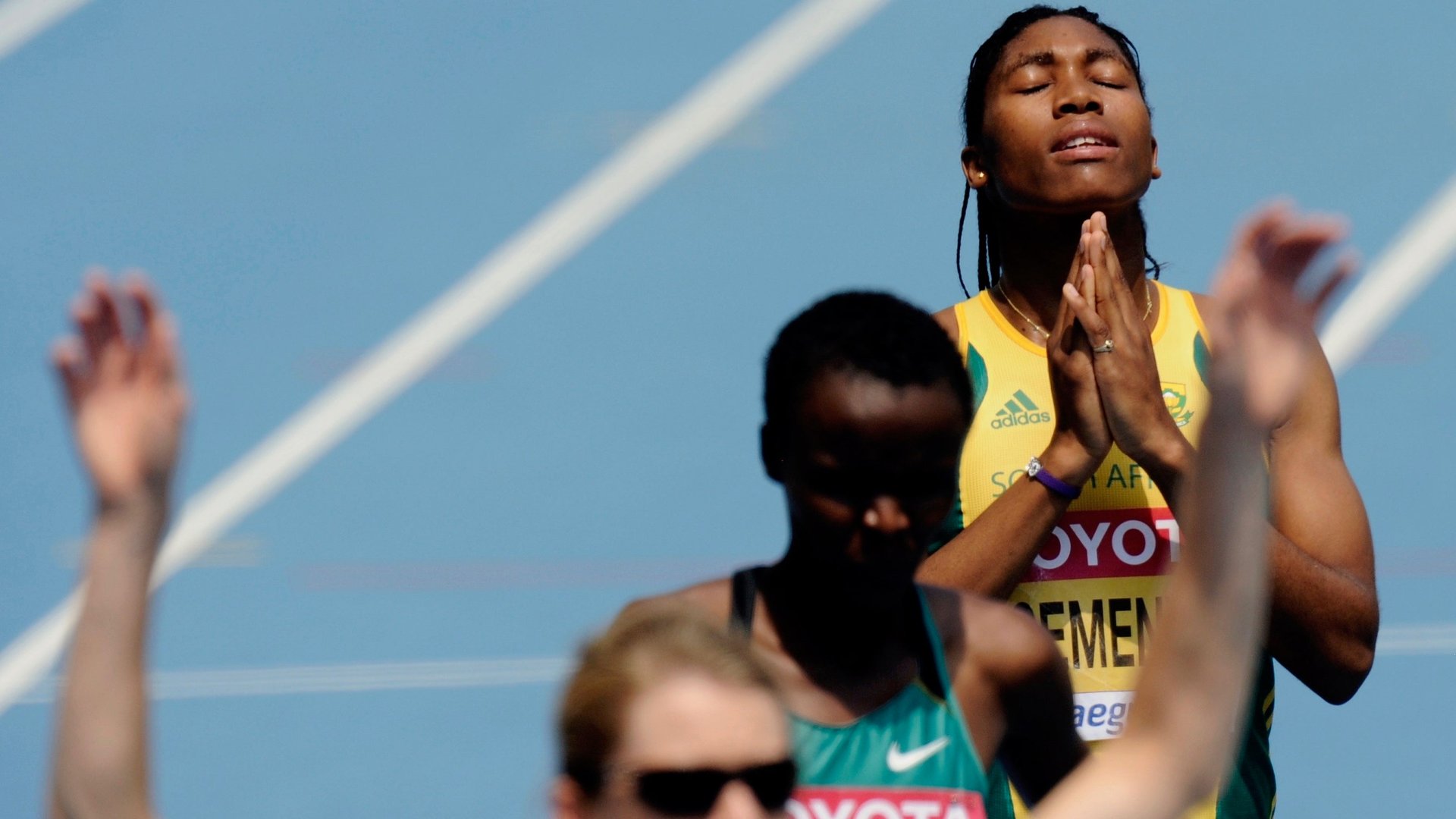Caster Semenya sees her latest defeat as a starting gun, not a finish line
Caster Semenya rarely loses, yet her latest defeat could be career-ending. In typical style, the South African athlete has refused to concede the loss.


Caster Semenya rarely loses, yet her latest defeat could be career-ending. In typical style, the South African athlete has refused to concede the loss.
The Court of Arbitration on Sport ruled this week to uphold International Association of Athletics Federation regulations that force “hyperandrogenic” athletes like Semenya, or those classed with “differences of sexual development,” to take medication to adjust their testosterone levels if they wish to compete against other women.
Semenya’s track record includes gold at the 2016 Rio Olympics in 800m. While she is not the only athlete to challenge the IAAF on the issue of hormone testing, she has become the face of a now wide-ranging and fierce debate over athletics, biology, and gender norms.
“For a decade the IAAF has tried to slow me down, but this has actually made me stronger. The decision of the CAS will not hold me back,” Semenya said in a statement. “I will once again rise above and continue to inspire young women and athletes in South Africa and around the world.”
Semenya will review the decision with her legal team and decide whether to appeal to the Swiss Federal Tribunal, Switzerland’s supreme court, which she can do within 30 days. Her statement reiterated her position that her challenge of the federation’s regulations is a fight for women in sports, and it is one she is prepared to take on.
Should she appeal, she will have the support of her team and the South African government. The South African Sports Confederation and Olympic Committee expressed its “downright” disappointment in the CAS ruling, while the South African government said it plans to lobby international organizations over what it considers a human rights issue. Semenya also has the backing of the United Nations Human Rights Council, which took on the matter as one of discrimination against women and girls.
South African sports scientist Dr Ross Tucker, a member of Semenya’s support team, said in a Facebook video following the ruling that he believes the athlete should fight back. Tucker said the medical evidence presented to the court wasn’t sufficient and failed to adequately show how hormonal changes would affect athletic performance in specific middle distance categories.
The IAAF’s premise for the regulations is to ensure fairness in women’s sports, which it sees as a “protected category.”
While the panel of three arbiters expressed “serious concerns” around the practical implementation of the regulations, they agreed two to one they were required to ensure fair competition in the middle distance events. The CAS also described the regulations as a “living document,” meaning they could be adjusted as required. It also acknowledged that the regulations were discriminatory. Despite this, it found that “such discrimination is a necessary, reasonable and proportionate means of achieving the IAAF’s aim of preserving the integrity of female athletics,” the summarized version of the ruling read.
Athletics South Africa said it was “reeling in shock” at how the CAS could “endorse discrimination without flinching.”
The Olympic champion rarely speaks publicly, making her Twitter timeline a window into her position on the decision. Within minutes of it being published, Semenya tweeted a quote card reading “sometimes it’s better to react with no reaction.” Later, she referenced a beloved character from soap opera Days of Our Lives, Stefano DiMera, known for his resurrections. She ended the day tweeting a sePedi phrase praising women, and adding that she is done proving herself: